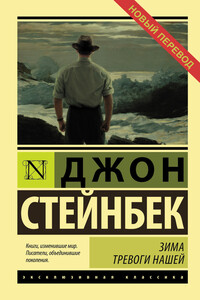SOMEWHERE IN ENGLAND, June 24, 1943—A
small USO unit is aboard this troopship, girls and men who are going out to
entertain troops wherever they may be sent. These are not the big names who go
out with blasts of publicity and maintain their radio contracts. These are
girls who can sing and dance and look pretty and men who can do magic and
pantomimists and tellers of jokes. They have few properties and none of the
tricks of light and color which dress up the theater. But there is something
very gallant about them. The theater is the only institution in the world which
has been dying for four thousand years and has never succumbed. It requires tough
and devoted people to keep it alive. An accordion is the largest piece of
property the troupe carries. The evening dresses, crushed in suitcases, must be
pressed and kept pretty. The spirit must be high. This is trouping the really
hard way.
The theater is one of the largest mess halls.
Soldiers are packed in, sitting on benches, standing on tables, lying in the
doorways. A little platform on one end is the stage. Tonight the loudspeaker is
out of order, but when it isn’t it blares and distorts voices. The master of
ceremonies gets up and faces his packed audience. He tells a joke—but this
audience is made up of men from different parts of the country and each part
has its own kind of humor. He tells a New York joke. There is a laugh, but a
limited one. The men from South Dakota and Oklahoma do not understand this
joke. They laugh late, merely because they want to laugh. He tries another joke
and this time he plays safe. It is an Army joke about MPs. This time it works.
Everybody likes a joke about MPs.
He introduces an acrobatic dancer, a pretty
girl with long legs and the strained smile acrobats develop to conceal the fact
that their muscles are crying with tension. The ship is rolling slowly from
side to side. All of her work is dependent on perfect balance. She tries each
part of her act several times and is thrown off balance, but, seriously, she
tries again until, in a pause in the ship’s roll she succeeds, and legs are
distorted properly for the proper two seconds. The soldiers are with her. They
know the difficulty. They want her to succeed and they cheer when she does.
This is all very serious. She leaves the stage under whistles and cheers.
A blues singer follows. Without the
loudspeakers she can hardly be heard, for her voice, although sweet, has no volume.
She forces her voice for volume and loses her sweetness, but she is pretty and
young and earnest.
A girl accordion-player comes next. She asks
for suggestions. This is to be group singing and the requests are for old
songs—“Harvest Moon,” “Home on the Range,” “When Irish Eyes Are Smiling.” The
men bellow the words in all pitches. There is no war song for this war. Nothing
has come along yet. The show continues—a pantomimist who acts out the physical
examination of an inductee and does it so accurately that his audience howls.
A magician in traditional tail coat manipulates colored silks.
In all the acts the illusion does not quite
come off. The audience helps all it can because it wants the show to be good.
And out of the little acts, which are not quite convincing, and the big
audience which wants literally to be convinced, something whole and good comes,
so that when it is over there has been a show.
One of the men in the unit has been afraid. He
has not slept since the ship sailed. He is afraid of the ocean and of
submarines. He has lain in his bunk, listening for the blast that will kill
him. He is probably very brave. He does his act when he is terrified. It is
foolish to say he should not be afraid. He is afraid, and that is something he
cannot control, but he does his act, and that is something he can control.
Up on the deck in the blackness the colored
troops are sprawled. They sit quietly. A great bass voice sings softly a bar of
the hymn “When the Saints Go Marching In.” A voice says, “Sing it, brother!”
The bass takes it again and a few other voices
join him. By the time the hymn has reached the fourth bar an organ of voices is
behind it. The voices take on a beat, feeling one another out. The chords begin
to form. There is nothing visible. The booming voices come out of the darkness.
The men sing sprawled out, lying on their backs. The song becomes huge with
authority. This is a war song. This could be



